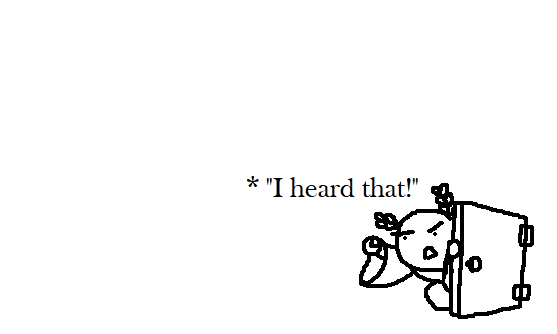Some folks like to say that married bachelors are logically impossible.
This isn’t technically the case. In logical modality alone, we don’t yet deal with words like “married” and “bachelor.” In order to get those words, we have to add a lexicon, and if that lexicon rules-out the conjunction of “married” and “bachelor,” then a married bachelor is lexically impossible (per that lexicon).
(This, I assert, is the same thing as metaphysically impossible (per that metaphysic), since I affirm that metaphysics are just lexica.)
You might see where I’m going with this. Whereas you and I might normally infer a lexicon in which “married” and “bachelor” are mutually exclusive, it may be that on some lexicon this isn’t the case, e.g., some strange lexicon S (‘S’ for strange) where “married” is defined as “electric” and “bachelor” is defined as “vehicle.”
So, there you have it. Married bachelors are possible on S.
Ergo, married bachelors are possible.
“Wait,” screams Anacletos, an individual neither you or I noticed was in the room with us. “You dropped the ‘on S.’ I can’t let you do that. Your conclusion makes it seem like they’re just possible, period, but they’re only possible per your stupid lexicon S (‘S’ for stupid).”
“Put the ‘on S’ back,” he commands.
I acquiesce, feigning reluctance and defeat.
But then my frown changes slowly to… a smile! For Anacletos was unwittingly serving my true aim, to impart the following lesson: “Modal operators of lexical or metaphysical possibility, necessity, etc. are supposed to be relativized to a lexicon that allows things, requires things, and rules things out.”
Anacletos rolls his eyes. “We don’t need to relativize the operator if we’re using the right definitions. It’s only because S is so unconventional that relativization is needed.”
“Get out,” I say.
Anacletos leaves the room.
It turns out that you can have a married bachelor using a lexicon that is much more normal than S. Let’s now discuss lexicon C (‘C’ for chill).
On C:
“Married” qualifies any person bound to a marital contract.
A “bachelor” is a man who has never been part of a sincere matrimonial relationship.
Notice that “married” is defined in a way that its litmus criteria (the requirements to “count” as married per C) do not demand a sincere relationship at all.
By contrast, that’s all “bachelor” per C cares about; whether there’s a formal contract in play or not is irrelevant (on C). It isn’t in the “bachelor” litmus criteria.
This lets the fringes overlap slightly:
A fellow named Svend lives in that overlap. Svend has always had zero interest in marriage, but entered into a marital contract with his friend Sif so that she could claim a conditional inheritance. But Svend never had a sincere marital relationship with Sif, nor any interest in a relationship at all beyond friendship.
Per C, Svend is a married bachelor.
And don’t read that in an “air quotes” tone of voice! I assert C is better at reflecting what we typically care about when we use these words than a lexicon U (‘U’ for uptight) that defines “bachelor” along (and against) precisely the same lines as “married” is defined.
In other words, unlike S (‘S’ for silly), I find C to be commendably concerned with what we commonly care about. I prefer its convention to U. (I actually most prefer a slightly different lexicon, but I won’t say what it is now.)
You don’t have to agree with my preferences, of course. You have preferences of your own, I bet. Our relationship to lexica is one of opting in and opting out. We make calls per our preferences and interests, a complicated cocktail of both matters of sheer taste as well as more factual concerns (e.g., to what degree a lexicon is internally coherent, to what degree it accords with typical usage in some context, to what degree it tends to catalyze miscommunication, to what degree it agrees with social standards & formal conventions like published dictionaries, etc.).
And because of that, there isn’t some “right definition” making relativization needless, as foolish Anacletos* suggested.
Instead, this suggestion is just pretense, and buying into it will lead to dangerously toxic levels of polysemy, philosophy’s biggest problem.






It's not actually clear to me bachelor means "unmarried man" in normal speech, usually it's applied to men who aren't married but plan on it. It seems a bit odd to call Catholic priests bachelors, for instance.
Pleasant, little story :3